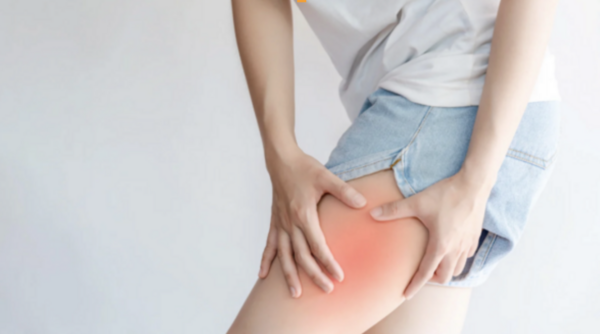Why consult an osteopath after giving birth?
Childbirth is a wonderful event that brings many joys, but it is above all a powerful moment that can be the source of many physical and psychological traumas.
After giving birth, many women choose to consult an osteopath to support their recovery and well-being. In this article, we'll explore why it's beneficial to consult an osteopath after childbirth.
Muscle imbalances and tensions
Throughout pregnancy, the body undergoes significant changes in order to welcome and carry the baby. These changes can lead to postural imbalances and joint dysfunctions, particularly in the pelvis and lumbar region, as well as various muscular tensions. Muscular tension can be caused by pregnancy, childbirth or simply by carrying or breastfeeding a baby.
Thanks to a range of specific, pain-free techniques, osteopathy can act on the various dysfunctions and help the body to re-establish its balance.
Osteopathic treatment not only relieves pain, but also prevents the onset of new disorders.
Pelvis and perineum

The pelvis and pelvic floor undergo considerable stress during pregnancy and childbirth.
This can lead to weakness or dysfunction of the pelvic floor, which can result in urinary and/or anal incontinence, lower back or pelvic pain, and dyspareunia (pain during intercourse).
By working on the pelvic joints, osteopathy will restore mobility and enable the area to function optimally, particularly from a muscular point of view. However, it will be necessary to strengthen these muscles through perineal re-education with a midwife or physiotherapist. We therefore advise you to consult an osteopath before your rehabilitation or in the first few sessions.
Your osteopath will also give you advice and exercises on breathing and contraction of the perineal muscles to optimize your rehabilitation, but these are also elements that will help you throughout your life.
A word of advice: consult osteopaths who have taken special training courses on the perineum.
Scars
Women who have undergone a caesarean section, perineal tear or episiotomy during childbirth can benefit from osteopathic treatment. These procedures can leave scars that can cause pain, stiffness and tension in the surrounding tissues. A specialized osteopath can help relieve these discomforts by working on the mobility and elasticity of the scar tissue.
Osteopathy uses gentle, tailored techniques to help reduce adhesions and tissue restrictions around the scar. This can promote better blood circulation, reduce inflammation and improve tissue mobility. The osteopath can also assess posture, biomechanics and overall body balance to identify any scar-related compensations or dysfunctions.
The psychological

The postpartum period is a time of significant emotional upheaval for a woman. In addition to physical changes, she may also face psychological challenges such as anxiety, post-partum depression and the stress of adapting to her new role as a mother. In this context, osteopathy can play an important role in providing complementary psychological support.
As a holistic health professional, the osteopath considers the woman as a whole, taking into account both her body and her mind. Through gentle, respectful techniques, osteopathy can help promote deep relaxation and reduce physical tension.
These physical adjustments can have a positive impact on the psychological well-being of the postpartum woman. By reducing physical pain and discomfort, osteopathy can promote better sleep quality, increased relaxation and reduced anxiety. In addition, the osteopath can establish a relationship of trust and provide a safe space where the woman can express her emotions and concerns.
Although not a direct treatment for mental health, osteopathy can help support psychological health by promoting an overall balance of body and mind. It is important to stress that osteopathy does not replace appropriate medical care for psychological disorders such as post-partum depression. In such cases, it is essential to consult a qualified healthcare professional for appropriate assessment and support.
Comprehensive, personalized care
Every woman is unique and has specific needs after childbirth. Osteopathy offers a holistic, i.e. comprehensive, and personalized approach to care. The osteopath will assess each woman's individual situation, taking into account her medical history, childbirth and current symptoms.
Using manual techniques adapted to the individual, the osteopath will be able to provide specific care to meet the unique needs of each patient.
Consultations last around 45 minutes, so the osteopath takes the time to take good care of her patient, to discuss her problems, to give advice and sometimes simply to listen...
Conclusion
In conclusion, consulting an osteopath after childbirth can offer many benefits for a woman's health and well-being. Whether to relieve pain, promote healing, prevent the onset of disorders or simply support the young mother, osteopathy can play an essential role in recovery after childbirth.
Don't hesitate to talk to an osteopath to assess your individual situation and benefit from follow-up tailored to your needs.
Marie Messager
Osteopath D.O
2 rue Alexis de Tocqueville
78000 Versailles




